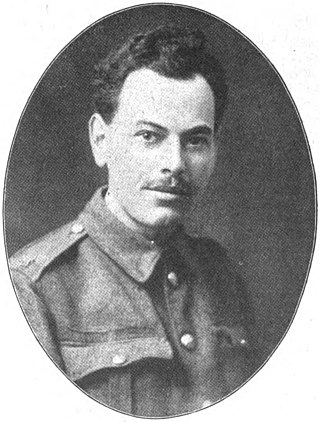
R.U.R. is a 1920 science fiction play by the Czech writer Karel Čapek. "R.U.R." stands for Rossumovi Univerzální Roboti. The play had its world premiere on 2 January 1921 in Hradec Králové; it introduced the word "robot" to the English language and to science fiction as a whole. R.U.R. became influential soon after its publication. By 1923, it had been translated into thirty languages. R.U.R. was successful in its time in Europe and North America. Čapek later took a different approach to the same theme in his 1936 novel War with the Newts, in which non-humans become a servant-class in human society.

Karel Čapek was a Czech writer, playwright, critic and journalist. He has become best known for his science fiction, including his novel War with the Newts (1936) and play R.U.R., which introduced the word robot. He also wrote many politically charged works dealing with the social turmoil of his time. Influenced by American pragmatic liberalism, he campaigned in favor of free expression and strongly opposed the rise of both fascism and communism in Europe.

Czech literature can refer to literature written in Czech, in the Czech Republic, or by Czech people.

The Czechs, or the Czech people, are a West Slavic ethnic group and a nation native to the Czech Republic in Central Europe, who share a common ancestry, culture, history, and the Czech language.
Artificial humans and autonomous artificial servants have a long history in human culture, though the term Robot and its modern literary conception as a mobile machine equipped with an advanced artificial intelligence are more fairly recent. The literary role of artificial life has evolved over time: early myths present animated objects as instruments of divine will, later stories treat their attempted creation as a blasphemy with inevitable consequences, and modern tales range from apocalyptic warnings against blind technological progress to explorations of the ethical questions raised by the possibility of sentient machines.

Josef Čapek was a Czech artist who was best known as a painter, but who was also noted as a writer and a poet. He invented the word "robot", which was introduced into literature by his brother, Karel Čapek.

Established in 1869 on the grounds of Vyšehrad Castle in Prague, Czech Republic, the Vyšehrad Cemetery is the final resting place of many composers, artists, sculptors, writers, and those from the world of science and politics. The centerpiece of the cemetery is the Slavín tomb designed by Antonín Wiehl, a large and notable tomb located within Vyšehrad cemetery.

War with the Newts, also translated as Salamander Wars, is a 1936 satirical science fiction novel by Czech author Karel Čapek. It concerns the discovery in the Indian Ocean of a sea-dwelling race, an intelligent breed of newts, who are initially enslaved and exploited. They acquire human knowledge and rebel, leading to a global war for supremacy. There are obvious similarities to Čapek's earlier R.U.R., but also some original themes.
Josef Nesvadba was a Czech writer, best known in the English-speaking world for his science fiction short stories, many of which have appeared in English translation.
Ludvík Souček was a Czech science fiction writer.

Czech culture has been shaped by the nation's geographical position in the middle of Europe, the Slavic ethnicity of Czechs, influences from its neighbors, political and social changes, wars and times of peace.

The theatre of the Czech Republic has a rich tradition in all genres, including drama, opera, ballet and dance, puppet theatre, black light theatre etc.

(Percy) Paul Selver was an English writer and translator. A prolific translator of Czech literature into English, he was best known as the translator of Karel Čapek.
Jaroslav Mostecký was a Czech science fiction writer.
Leon Clifton is a fictional detective, a protagonist of numerous Czech language detective stories of early 20th century. He is a brilliant American detective, master of disguise, capable to solve any mystery.

Jaroslav Olša Jr. is a Czech diplomat and writer. His posts include those of Ambassador to Zimbabwe (2000–2006), South Korea (2008–2014) and the Philippines (2014–2018). and Consul General in Los Angeles (2020–current); He is author of books on history, art and literature of Asia and Africa.








